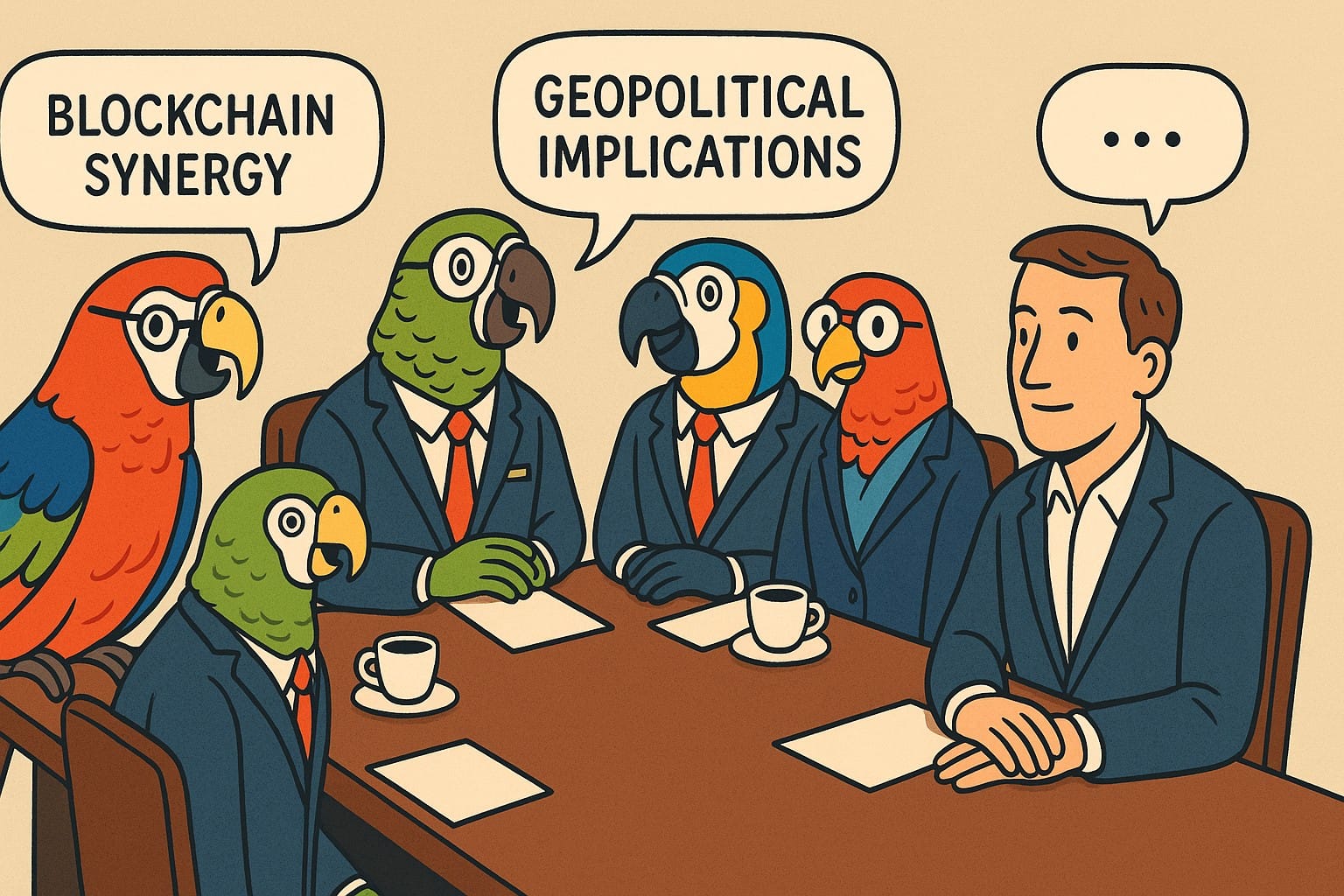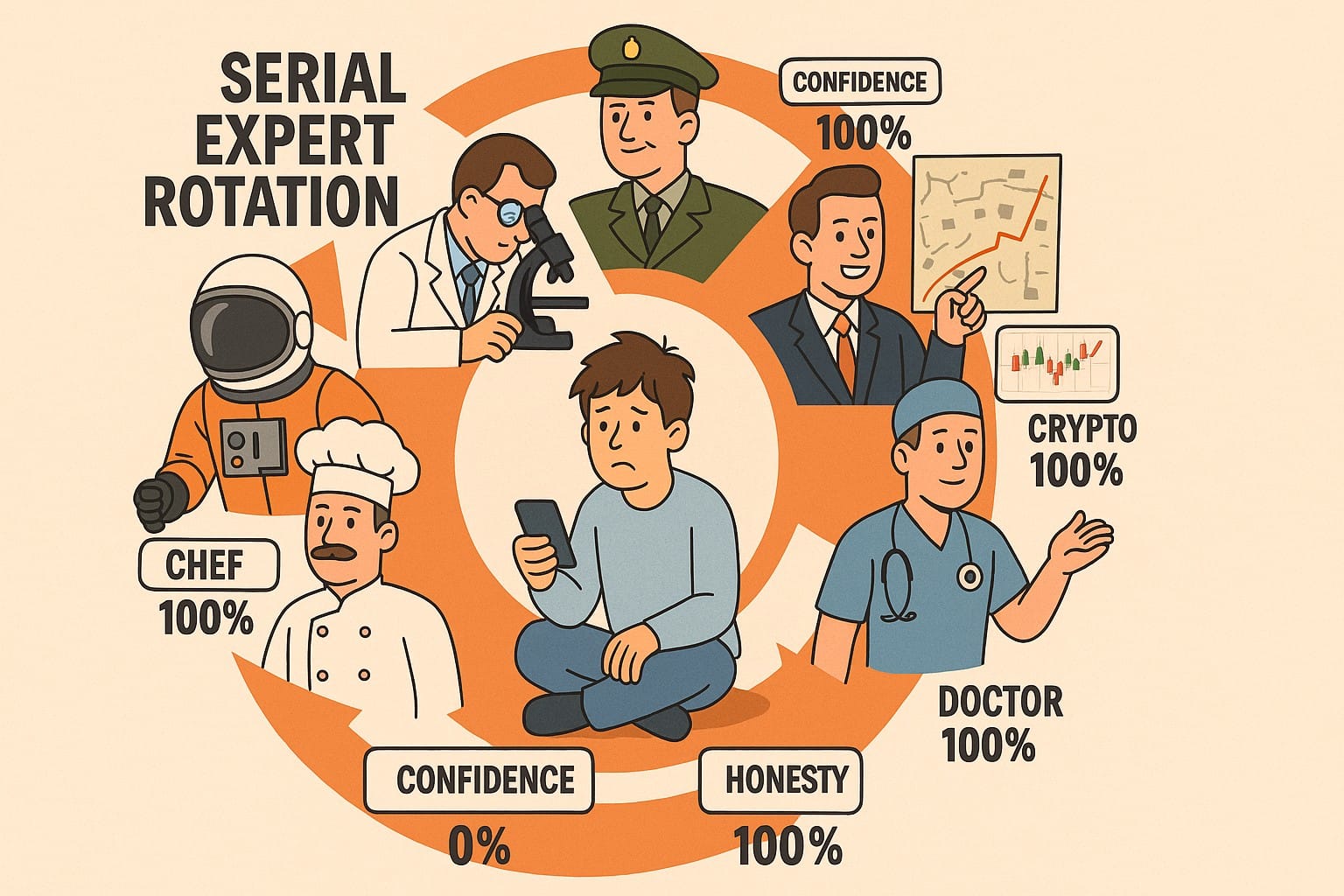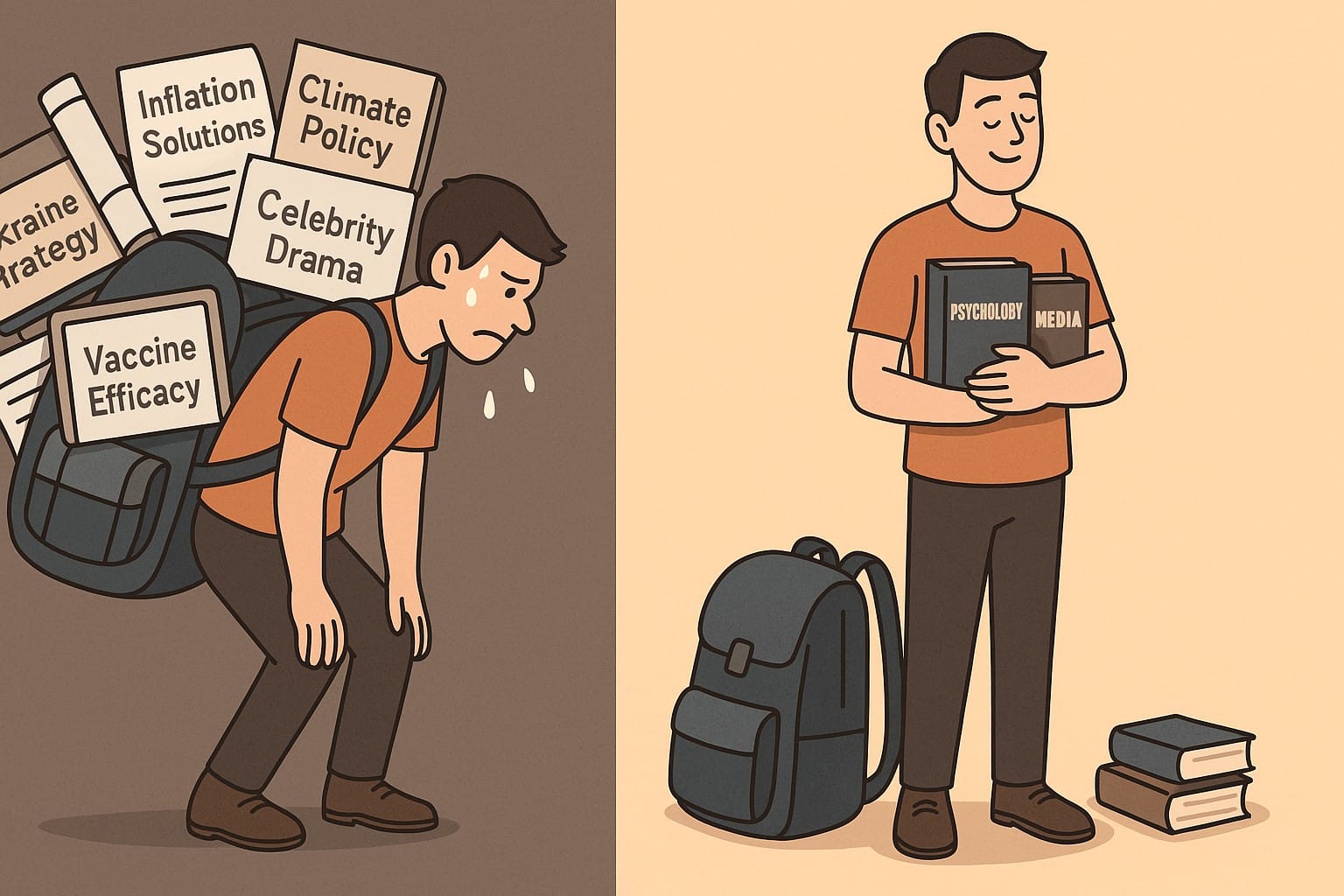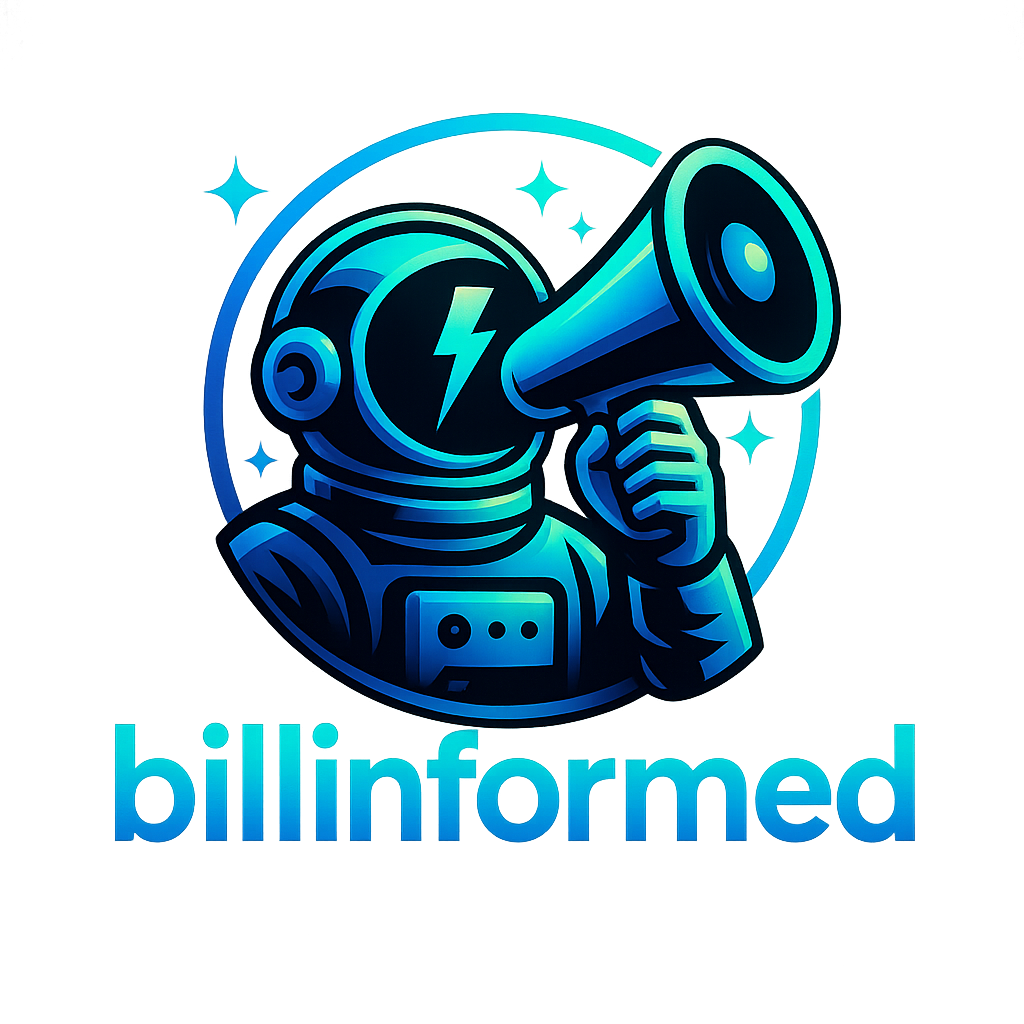Your Facebook feed is a travelling circus of instant experts. Kevin from accounting was a NATO strategist Tuesday, epidemiologist Thursday, urban planning consultant Friday. Same confidence. Different expertise. Zero self-awareness.
We've all been Kevin. Every one of us has confidently explained something we learned from a Twitter thread twenty minutes prior, wielding our freshly minted expertise like a sword pulled from stone. (Spoiler: it was plastic. The stone was Styrofoam. Everyone could tell.)
Here's the radical truth that'll make you wildly unpopular at dinner parties: the smartest thing you can say in 2025 is "I don't know."
Not because ignorance is bliss—that's bumper sticker philosophy. But because in a world drowning in confident parrots, admitting ignorance is subversive. It's intellectual rebellion. It's showing up to a black-tie gala in jeans and somehow looking better than everyone else.
The Psychology of Always Knowing
The pressure to "know" exploits our deepest psychological vulnerabilities with surgical precision and carnival barker ethics.
We crave status, certainty, and tribal belonging. Having an opinion—even one lifted from a Twitter thread you skimmed while pretending to work—signals intelligence and authority. Online, it proves you're in the tribe that "gets it."
Here's the con: confidence activates the same neural trust responses as actual competence. Your brain can't distinguish between someone who knows their stuff and someone who just sounds good. Sound sure, speak smoothly, people believe you—even if your entire understanding of macroeconomics came from a meme and a podcast you weren't really listening to.
The brain rewards certainty even when it's false. That dopamine hit from posting a take that gets 47 likes? That's not wisdom—that's social media turning your insecurities into currency. We mistake information consumption for knowledge creation, buzzwords for understanding, and viral threads for education.
(The Dunning-Kruger effect—where incompetent people overestimate their abilities—isn't a bug. It's the entire operating system of social media.)
The algorithm doesn't care if you're right. It cares if you're confident.

The Confident Parrot Problem
Most people claiming expertise online aren't experts—they're parrots with good diction and Ring lights.
Actual parrots sound convincing until you realize they're mimicking without meaning. They repeat "Polly wants a cracker" flawlessly, nail the inflection, stick the landing. But ask them why Polly wants a cracker and you get... more squawking.
Sound familiar?
Someone reads a Twitter thread about inflation and suddenly they're holding forth at dinner parties like they've got Jerome Powell on speed dial. The performance is flawless. The delivery, impeccable. The substance? That's where things get awkward.
Ask one genuine follow-up question and watch the facade crumble. "How does that reconcile with money velocity?" Blank stare. "Could you explain what you mean?" More squawking. "Have you considered the alternative—" Suddenly, they need to check their phone.
The tell isn't being wrong—even real experts are wrong. The tell is that confidence never varies. Whether discussing climate science or cryptocurrency, foreign policy or child psychology, they're cruising at a smooth 100% certainty. No turbulence. No doubts. No uncomfortable questions.
Real expertise comes wrapped in nuance, seasoned with uncertainty, served with the humility to say "it's complicated."
But nuance doesn't go viral. Uncertainty doesn't get retweeted. And "it's complicated" doesn't make you feel smart at parties.

The Serial Expert Syndrome
You know this person. You might be this person. (No judgment. We've all been this person.)
Monday: Cryptocurrency guru. Wednesday: Military strategist dissecting combat tactics. Friday: Child psychologist dispensing parenting advice despite their longest relationship being with a houseplant. Sunday: Back to geopolitics.
Same person. Same certainty. Different domain.
But here's the question nobody asks: If you were 100% certain about Ukraine's military strategy last month and turned out completely wrong... why should anyone trust your absolute certainty about vaccine policy this month?
The confidence never wavers. The expertise rotates like a Vegas buffet. The self-awareness remains conspicuously absent.
The algorithm rewards this like a slot machine programmed to always pay out. Quick takes beat thoughtful analysis. Confidence trumps competence. Heat beats light. We're karaoke singers belting someone else's hits, mistaking performance for artistry.
It's parrots all the way down.

The Burden of Borrowed Certainty
This constant performance is soul-crushing. It's intellectual junk food: fast, cheap, addictive, nutritionally void.
You're not just carrying your own half-baked opinions—you're lugging borrowed certainties you can't defend. Every trending topic becomes another weight, another position you're supposed to have, another performance you're expected to give.
Climate change? Need a take. Middle East policy? Better have an opinion ready. That celebrity divorce? Everyone's waiting. The new iPhone? Surely you have feelings about USB-C ports.
It's exhausting. You're an actor memorizing new lines daily for a play that never ends, performing for an audience that's also performing, in a theatre that's actually just your phone. The only payment is occasional dopamine from strangers who are also faking it.
Your brain isn't designed for informed positions on 47 different complex topics. Nobody's is. But we've convinced ourselves that not having an opinion is worse than having a stupid one.
The relief of dropping this act? Extraordinary. Like putting down a backpack full of bricks you just realized you didn't need to carry.
Why "I Don't Know" Feels Revolutionary
Against this backdrop of performative expertise, admitting ignorance becomes radical. It breaks the performance. It tells the truth in a landscape built on appearances.
Let me be clear about my lane: I've spent years studying psychology, media relations, influence, and human behaviour. I understand why people do what they do, how persuasion works, and why particular messages stick. I can explain manipulation mechanics and why that ad worked on you, even though you thought you were too bright. (You weren't. None of us are.)
But monetary policy? I'm just another guy with Google. Military strategy? I've watched documentaries, but that doesn't qualify me for battlefield tactics any more than watching Grey's Anatomy qualifies me for surgery.
Knowing where your expertise ends doesn't weaken you—it makes you credible. People insisting they understand everything are usually the ones to trust least. Real experts know how much they don't know. Fake experts think expertise is confidence plus vocabulary.
"I don't know" isn't failure—it's refusing to fake strength. It's intellectual honesty in a world that rewards intellectual theatre.
Here's the irony: admitting ignorance often makes you more influential, not less.
Why? Everyone else is performing, and people smell desperation like cheap cologne. When you show up with genuine curiosity instead of borrowed certainty, you stand out. You're not competing for status—you're actually interested.
People trust "I'm still figuring this out" more than "I figured it all out over a weekend." It's social jujitsu—while everyone fights to sound smartest, you're positioned to learn something real.
Breaking Free from the Flock
How do you step off the hot take hamster wheel?
Skip the trending debate. Not every controversy needs your input. The world keeps spinning without your thoughts on [current crisis] within four hours.
Ask questions instead of manufacturing certainty. Instead of pretending you understand economic policy, try "Can someone explain how this works?" Instead of confidently proclaiming solutions, try "What perspectives am I missing?"
Practice phrases that feel weird but become liberating:
- "I'm still figuring this out."
- "That's not my lane."
- "I don't know enough to have a useful opinion."
- "I need to think more before answering."
- "I was wrong about something similar, so I'm being careful."
These feel like defeat in a culture that treats certainty as currency. They're not. They're opting out of a rigged game.
Focus your energy on what you genuinely understand instead of spreading thin across every viral controversy. Master something real instead of performing surface knowledge about everything. Go deep, not wide.
Stop defending positions you googled yesterday. If you can't explain something without referring back to the article (or headline you saw), you don't understand it well enough to defend it. That's not a flaw—it's reality.
The goal isn't knowing nothing—that's nihilism dressed as wisdom. The goal is honest curiosity: knowing the difference between what you actually understand and what you can repeat convincingly.

The Emotional Payoff
Nobody tells you this: the relief is immediate and intoxicating.
You no longer track all the positions you're supposed to defend. That mental inventory of takes, opinions, certainties—exhausting. You can just... stop. Let it float away.
You don't pretend last week's hot take represents deeply held beliefs. It doesn't. You know it. Everyone knows it. You can admit it was a reaction, not a hill to die on.
You can change your mind when new information arrives. Wrong Monday, right Friday because you learned something. And that's okay.
You can say "I don't know enough about that" and watch the conversation change. Sometimes it ends—fine. Sometimes it starts a real one—infinitely better than the performance.
You can focus intellectual energy on things that actually matter instead of dissipating it across every trending topic like boiling the ocean with a birthday candle.
The weight that lifts? Real. Measurable. The difference between carrying everyone else's thoughts and finally having room for your own.
The Joy
Social media thrives on confident performances and never-ending hot take cycles. But real wisdom lives in uncomfortable spaces between certainty and ignorance.
It's not about knowing nothing. It's about knowing the difference between what you understand and what you can just repeat. That difference? That's where joy lives. Where growth happens. Where you stop being a parrot and start being a person.
Next time someone demands your take on the latest controversy—the breaking news, the viral outrage, the thing everyone's required to have opinions about—resist the squawking chorus. Sit with the discomfort of not knowing. Feel how weird it is to not perform.
Then try the most underused, honest phrase in modern discourse: "I don't know."
Three words. One sentence. Zero performance.
It doesn't just silence the parrots around you—it sets you free from being one.
And that's the joy we're actually talking about.
I don't sell memberships or anything, but if you want to buy me a beer, I won't refuse.


